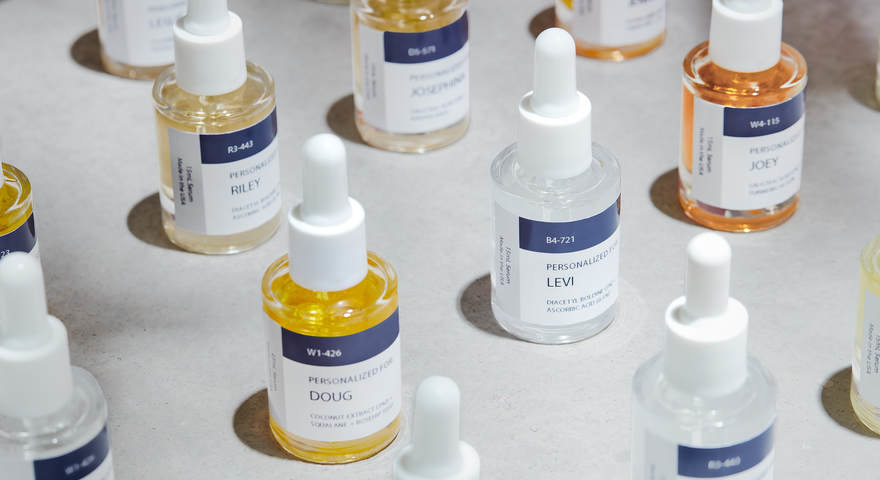
ATOLLA’S SKIN HEALTH SYSTEM DRIVEN BY MACHINE LEARNING IS DESIGNED FOR YOU AND ONLY YOU
Via Core 77
After a successful Kickstarter campaign in 2018, Atolla—a customized skincare company born and bred at MIT—has launched its first product. The Atolla Skin Health System is a monthly subscription model that costs $45 a month. The Atolla subscription includes a skin analysis kit, a skin health tracking app, and finally, a serum created just for you. Customers will receive a new serum each month that adjusts according to an algorithm that incrementally factors changes such as seasonal weather, diet, and skin pH. The difference between Atolla and other skincare companies is a future-forward solution made to help people ailing with skin problems through pinpointed data and skin science.
CEO Meghan Maupin’s original idea for Atolla stemmed from her MIT thesis research on the skincare industry’s environmental effects and her personal skin troubles. “I have super sensitive skin, and when I got to MIT, I found myself dealing with a whole new set of skin issues,” says Maupin, “I couldn’t understand what was causing my skin freakouts or how to solve them.” With COO Sid Salvi, Maupin formed the idea to leverage advanced machine learning algorithms to log precise skin data around individual consumers to create hyper-personal serums.

The process of designing customized skincare turns out to be a complicated business. To blend precise skincare formulas, the Atolla team had to employ a modular customization manufacturing model, which meant finding manufacturers excited about their technology’s potential. As Maupin noted: “[finding manufacturing partners] takes someone who understands where the industry is going to go and that the future of manufacturing in any industry is data driven. To us, it seems like a chemist’s dream—we have all this data about people’s skin, what they like and what will work. We’re so excited about this, so we had to find people and partners who also thought it was equally cool.”

User testing and app updates were another huge undertaking for Atolla pre-launch. Atolla used their crowdfunding customer base after the campaign to continue design research. This user research helped them reach small UX breakthroughs for their final app. For example, Atolla subscriptions begin with an online intake survey, followed by the skin analysis kit sent in the mail shortly after. As Maupin told us, “originally in our user testing, [the intake survey and skin analysis kit were] lumped together, but then we found that people completed more often if we split them up into two parts—it made it more digestible.” The Atolla app helps you track your skin’s progress and how different beauty products might be affecting your skin. Maupin says in addition to providing a product that works, “we can help people solve and figure out issues that they’re having that they haven’t been able to figure out on their own. That’s the prime application of our model.”

Finally, establishing the right tone for the brand’s overall design was an important factor in Atolla’s launch plan. “From a branding perspective, we’ve done a lot of testing. A big thing we’ve been trying to do with our visual was adding warmth, to both images and [physical] materials.” The packaging maintains a feel that lies in between the cosmetic and pharmaceutical, which signals a sense of trust mixed with a fun attitude reminiscent of your other favorite skincare brands. In accordance with the brands sustainability goals, the team also put a big emphasis on their product packaging and shipping materials being either recyclable or compostable. “Obviously we’re shipping something to someone each month so we wanted to make sure that all of our packaging could easily be recycled,” says Maupin.
The Atolla team has big plans for new products and helpful app features in the future, but for now, introducing a personalized serum into the market allows the brand to easily merge into consumers’ daily skin routines. “We’re not, as a new brand, asking people to replace their favorite product with us,” says Maupin, “we’re building their trust by helping them solve an issue.” After all, the company’s purpose isn’t just to become the new skincare product that customers are addicted to using. Atolla’s entire mission is to reimagine the future of skincare by creating a system gives users agency in understanding what products will truly work for their skin.


